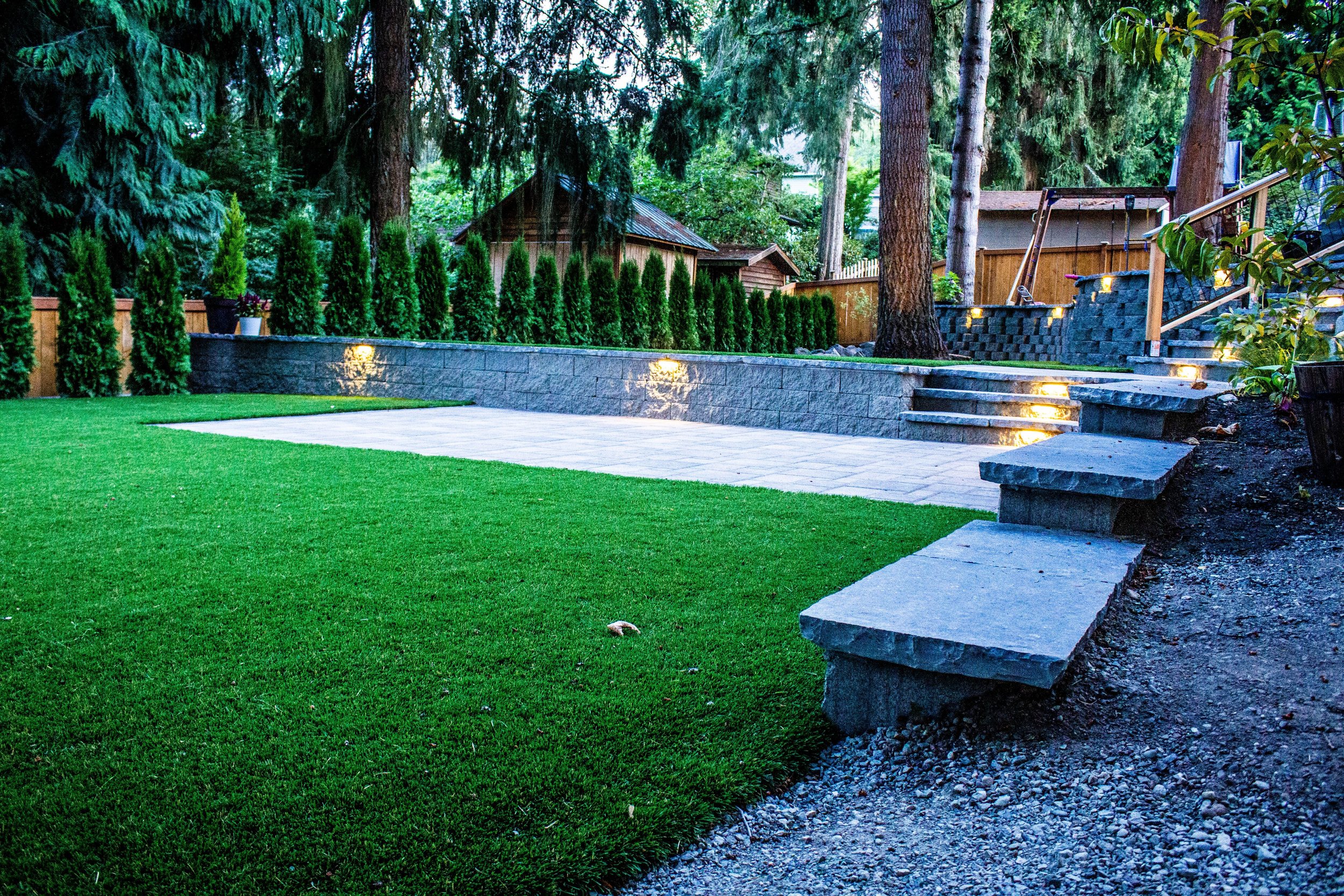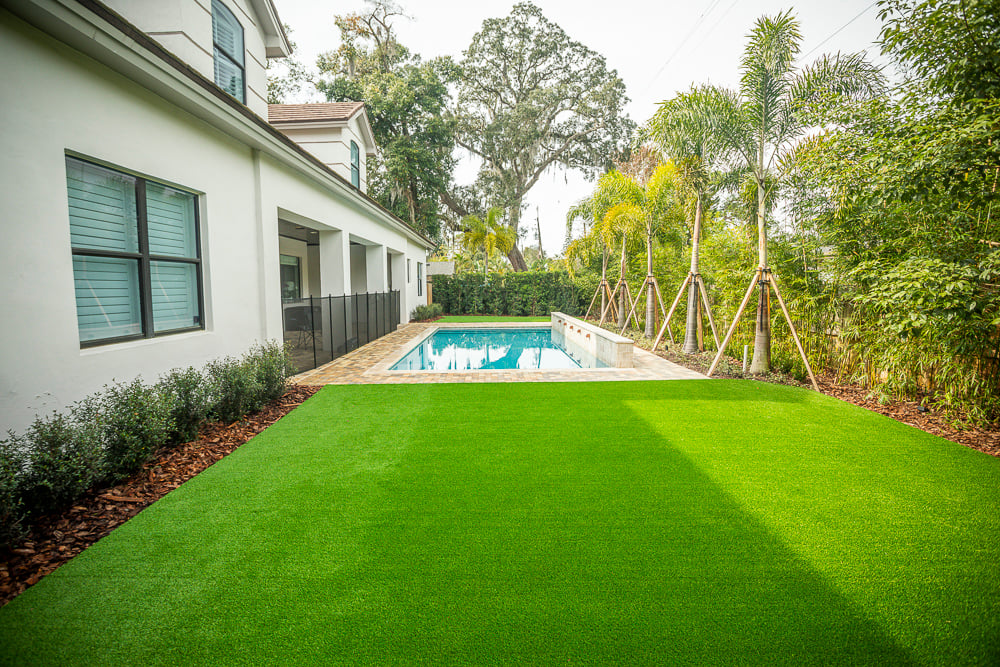Best Phoenix Turf Companies Providing Synthetic Grass Options
Wiki Article
Delve Into the Environmental Benefits of Opting for Artificial Turf Solutions
The fostering of man-made lawn solutions provides a compelling opportunity to address pressing environmental difficulties. By dramatically lowering water use and decreasing the application of unsafe chemicals, these alternatives not just advertise lasting landscaping yet additionally protect local environments.Water Preservation Benefits
One of the most considerable advantages of synthetic grass is its capability to save water. In comparison, artificial grass does not need watering, dramatically decreasing the total demand for water resources.By removing the demand for regular watering, synthetic grass contributes to lasting landscape techniques and helps minimize the environmental impact of excessive water intake. The conservation of water expands to the reduction of drainage, which can lead to soil disintegration and river pollution.
In addition, the setup of fabricated grass enables home owners and towns to allocate water resources a lot more effectively, concentrating on necessary uses such as drinking water and farming. The shift in the direction of synthetic grass not only advertises responsible water usage yet likewise straightens with wider environmental goals focused on protecting natural sources.
As communities progressively focus on sustainability, the water preservation advantages of synthetic grass present an engaging case for its fostering in household and business landscaping jobs.
Lowered Chemical Usage
The change to synthetic grass dramatically lowers the reliance on chemical therapies commonly utilized in all-natural turf maintenance. Typical turf management usually entails the application of plant foods, herbicides, and pesticides to promote development and control insects. These chemicals can position risks to human health, regional wild animals, and the environment, adding to soil and water contamination.In contrast, fabricated turf gets rid of the demand for these harmful compounds. By reducing the release of artificial substances right into the community, man-made grass promotes healthier dirt and water systems.
Moreover, the absence of chemical overflow connected with man-made lawn installations assists secure neighborhood rivers from air pollution, sustaining marine life and preserving biodiversity. Turf installation phoenix az. As communities progressively focus on lasting techniques, going with synthetic grass offers a viable remedy that aligns with ecological preservation objectives. Through this change, property owners can appreciate lavish environment-friendly spaces without endangering environmental health and wellness, paving the method for an extra sustainable future
Lower Carbon Footprint

In addition, the installment of synthetic grass can lead to considerable water conservation. Natural grass require substantial quantities of water for irrigation, which not just includes in the carbon footprint connected with water extraction and therapy however additionally pressures neighborhood water resources. In comparison, synthetic grass requires very little maintenance, needing no watering, consequently dramatically lowering water usage and its connected power expenses.
In addition, the durability of synthetic grass adds to its lower carbon effect. With a life expectancy of approximately 15 years or even more, the demand for constant substitutes is decreased, leading to much less waste and reduced energy consumption in manufacturing and throwing away conventional grass alternatives. Overall, synthetic grass presents a sustainable choice for environmentally aware landscaping.
Habitat Preservation
Habitat preservation is a critical consideration in the dispute over landscape design options, specifically when comparing synthetic grass to natural yard. Natural grass yards frequently call for substantial maintenance, including making use of herbicides, pesticides, and fertilizers, which can negatively influence local communities. These chemicals can leach right into the dirt and waterways, damaging indigenous vegetation and fauna and disrupting local environments.
In contrast, synthetic lawn presents an opportunity to lower the ecological footprint of landscaping. By choosing for artificial turf, home owners can decrease the disturbance of all-natural environments related to standard yard treatment practices. Synthetic grass eliminates the demand for damaging chemicals, thereby check out this site protecting close-by wild animals and keeping the honesty of surrounding ecological communities. The installment of synthetic grass can lead to the conversion of former grass locations into even more biodiverse landscapes, such as pollinator gardens or indigenous plant locations, which can support neighborhood wildlife.
Eventually, the change to synthetic grass not just saves water and reduces maintenance efforts yet additionally promotes a much more harmonious partnership between human activities and the natural surroundings, promoting environment conservation in the procedure.
Long-Term Sustainability
Lasting sustainability is a crucial consider evaluating the advantages of synthetic grass over standard grass yards. One of the most substantial benefits of artificial lawn is its sturdiness; it can last as much as 15-20 years with marginal maintenance, whereas all-natural yard requires frequent reseeding and substitute. This durability reduces the demand for consistent sources, such as water, fertilizers, and pesticides, which are necessary for maintaining a healthy grass lawn.Additionally, synthetic grass adds to a decrease in carbon discharges linked with yard treatment tools. Traditional yards often require navigate to this website gas-powered lawn mowers, leaners, and blowers, every one of which add to air pollution. Phoenix turf companies. In contrast, synthetic grass removes the requirement for such tools, promoting a cleaner environment
In addition, the manufacturing of synthetic grass significantly utilizes recycled materials, boosting its sustainability account. As makers adopt environmentally friendly methods, the ecological impact of man-made grass remains to lessen.

Verdict
The fostering of synthetic grass options presents substantial environmental advantages, including significant water conservation, lowered dependence on unsafe chemicals, and a lower carbon impact. Moreover, fabricated grass help in preserving all-natural habitats by minimizing land disruption and promoting long-term sustainability through making use of sturdy products. Collectively, these aspects underscore the possibility of synthetic grass to contribute positively to ecological health and offer a viable alternative to typical landscaping techniques in an increasingly resource-conscious globe.In comparison, synthetic grass does not need watering, dramatically reducing the general need for water sources. By minimizing the release of synthetic compounds into the community, man-made grass promotes much healthier dirt and water systems.
Furthermore, the installment of artificial lawn can result in significant water conservation. In comparison, fabricated turf requires minimal upkeep, needing no watering, consequently significantly decreasing water usage and its linked energy expenses.

Report this wiki page